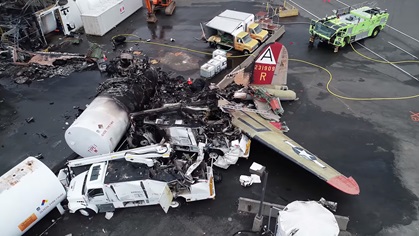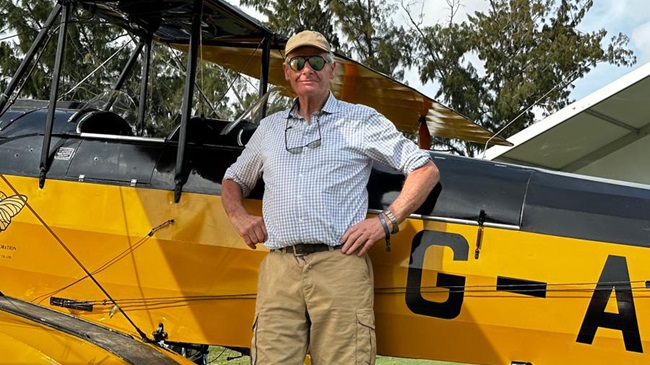FAA rejects Collings Foundation petition
'Living history' flights disallowed
The FAA cited lapses in crew training, maintenance, and safety management system implementation among its reasons for grounding passenger flights in vintage aircraft by the Collings Foundation.
The foundation based in Stow, Massachusetts, has operated World War II vintage warbirds for many years under a “living history flight exemption” that allowed the nonprofit group to collect money from passengers for rides aboard the foundation’s fleet of warbirds. That revenue covered much of the cost of aircraft operations.
Seven people, including the pilot, Ernest “Mac” McCauley, co-pilot Michael Foster, and five passengers, were killed after Nine O Nine crashed short of the runway during an emergency landing attempt following reported engine trouble.

The NTSB investigation is ongoing, though preliminary information made public in the weeks following the crash suggests that the B–17G may have lost power from two of its four engines, and the FAA’s March 25 decision revoking the foundation’s exemption allowing passenger flights with immediate effect noted additional findings from a post-crash inspection of engines 3 and 4.
“Regarding engine 4, to prevent the magneto 'P' leads from separating from the magnetos, someone had attempted to rig the magneto leads in place with safety wire. Inspection and testing of engine 4 left magneto revealed the movement of the safety-wired lead caused grounding to the case, which rendered the magneto lead inoperative. In addition, the right magneto of engine 4 was found unserviceable,” the FAA noted in the March 25 decision. “An inspection of engine 3 showed all spark plugs electrode gaps were out of tolerance, fouled, and revealed various signs of detonation. Further inspection of this engine revealed problems with the cylinders.”
The FAA noted additional discrepancies with maintenance and maintenance records in its decision, and that the pilot in command was also serving as the organization’s director of maintenance.
“As a result of these findings and other information, the FAA questions whether the engines were inspected adequately and in accordance with the applicable maintenance requirements,” the FAA wrote in the decision signed by Robert Carty, deputy executive director, Flight Standards Service.
The FAA also faulted the Collings Foundation for lapses in crew training, and documentation of that training, as well as adherence to the safety management system that the organization had submitted for FAA approval.
“While Collings produced some training records for maintenance personnel and pilots, the evidence indicates that Collings did not train the crew chief who was onboard the B–17G that was involved in the accident on October 2, 2019,” the decision states.
The Collings Foundation issued a statement on March 26 responding to the FAA decision:
“The Collings Foundation currently is reviewing the FAA’s decision and evaluating our options. As a party to the NTSB investigation into the tragic B–17 accident in Connecticut on October 2 of last year, we are not permitted [to] comment on issues pertaining to the accident investigation or findings to date. We look forward to discussing with the FAA its decision findings that were not addressed with the Foundation before the issuance of the FAA decision.
“Through thirty years of passenger carrying operations, and until the October 2, 2019 accident, the Wings of Freedom tour had never had an accident, injury or fatality. This record reflects a commitment to safety that has proudly set a standard among the Warbird community for generations. The Foundation has always held safety as its top priority.”
More than 1,500 comments were submitted on the Collings Foundation’s petition to renew its exemption, many citing the historical importance of the aircraft, and the value of giving new generations a firsthand experience aboard the machines that helped win World War II.



